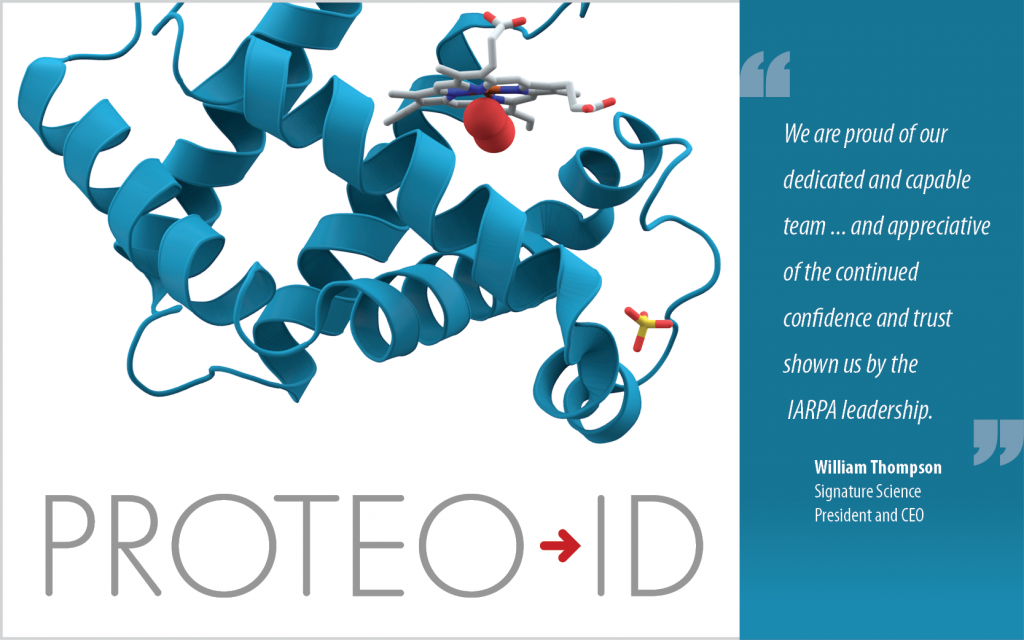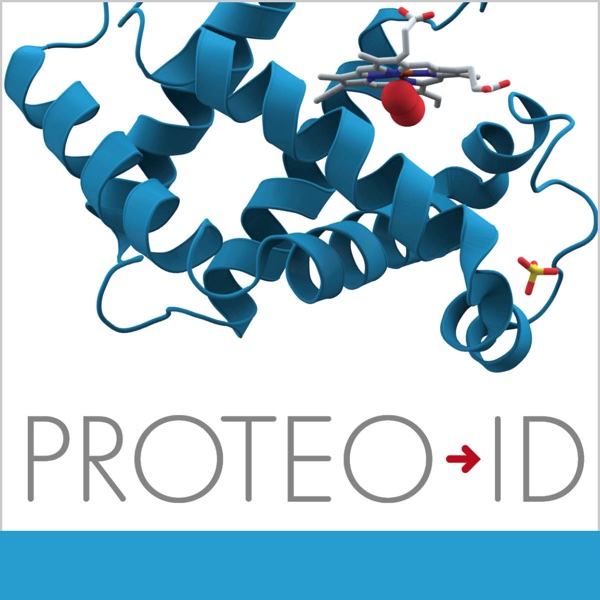
AUSTIN, TEXAS – July 16, 2019 – Signature Science, LLC has been awarded funding for Phase 2 of their work supporting the Intelligence Advanced Research Projects Activity’s (IARPA) Proteos program. The research team will continue its development of the Proteo-ID method. Proteo-ID aims to accurately identify people via protein sequencing of skin cells deposited while touching an item. Phase 2 funding is valued at $2.1M.
The Proteo-ID methodology will significantly expand human forensic analysis through the sequencing of proteins, which are stable biomolecules that contain genetic information in the form of single amino acid polymorphisms (SAPs). Detection of a panel of SAPs, which are directly associated with single nucleotide polymorphisms (SNPs) in the human genome, will allow human identification at random match probabilities of less than 1 in a trillion.
Signature Science was a prime performer for Phase 1 of IARPA’s Proteos program. “We are proud of the Phase 1 scientific advances made by our dedicated and capable team, and appreciative of the continued confidence and trust shown us by the IARPA leadership and program staff. Signature Science and our teaming partners remain fully committed to program success,” said William Thompson, Signature Science President & CEO.
Work under the contract is expected to be performed at Signature Science’s facility in Austin, TX, as well as partner facilities in Fort Worth, TX, and Columbus, OH.
About Signature Science, LLC: A subsidiary of the Southwest Research Institute, Signature Science, LLC, is a scientific and technical consulting firm providing multi-disciplinary applied research, technology design and development, and scientific, technical and operational services to government and industry.
This research is based upon work supported in part by the Office of the Director of National Intelligence (ODNI), Intelligence Advanced Research Projects Activity (IARPA), via contract number 2018-18041000003. The views and conclusions contained herein are those of the authors and should not be interpreted as necessarily representing the official policies, either expressed or implied, of ODNI, IARPA, or the U.S. Government. The U.S. Government is authorized to reproduce and distribute reprints for governmental purposes notwithstanding any copyright annotation therein.

